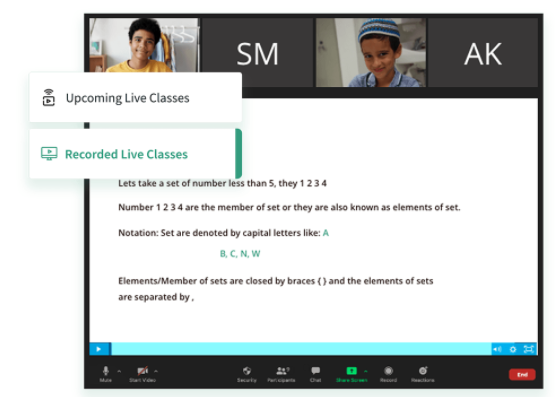Fusemachines is offering a grant to help schools and colleges go online
KATHMANDU, Oct 8: The pandemic is forcing schools to switch to online classes globally, and a New York-based AI company is working to make education available, accessible and affordable to students around the world. Operating currently in Nepal, Canada, the USA and the Dominican Republic, the Fusemachines Inc. leverages artificial intelligence (AI) for education solutions and seeks to democratize AI.
The program, under the Educations Digitization Grant (a non-cash credit grant), was launched to help digitize educational institutions in Nepal and to ensure that students receive the best online experience during this difficult COVID times.

Fuse Classroom has been supporting the digitization of educational institutions across Nepal. The company has been working with colleges and schools with the ability to run completely online or in a blended modality to give their students the flexibility to take classes at different times than institutions were previously able to offer.
Launched at the beginning of the nationwide lockdown in March, more than 25,000 students and teachers in Nepal, the USA, the UK and South Africa are using the platform for teaching and learning experiences.
“Fuse Classroom brings you a reimagined and all-inclusive education platform with smart AI features that empower both school administrators, instructors, and students," Parag Shrestha, director of product and business development, said.
Daraz's 11.11 sets a new sales record serving 0.7 million Nepal...

The Fuse Classroom Education Digitization Grant program is an initiative to help schools and colleges continue their digitization journey despite the challenges posed by the pandemic. Under the program, eligible schools are provided with non-cash credit grants of up to 250,000 rupees. The grant can be used to secure Fuse Classroom products and services in an effort to make their online learning experience seamless and effective. Deadline to apply for the grant is until October, 15.
A total of 20 schools have been awarded the grant so far. About 500 schools from across Nepal have applied for the grant, which includes 30 percent public, 30 percent community and 30 percent private schools. The company is slated to select 50 to 100 schools, providing a support of worth Rs 26 million.
"We have altogether seven modules out of which the schools get two modules, namely Learning Management System and Online Live," Shrestha said.
In addition, the company, with the help from education specialists, has added services, including training, onboarding, discovery meeting, and consultations.
Through AI-assisted learning, the Fuse Classroom features like student status, activity recommendation, automated discussion forums, question-answer systems, and a chatbot interface. These features help students assess progress, recommend study material, or automatically answer students’ questions.
Shrestha claimed that the Fuse Classroom has a big role to play in helping the education sector segue to digital transformation. The platform has all the features to conduct live classes, enroll students, make courses available online, create new courses, search for instructors and other useful materials, communicate with students, conduct quizzes and tests, assignments and other course materials.
"We go beyond online learning and digitization by leveraging artificial intelligence. We then help schools make data-driven decisions. We can inform the teachers and administrations through insights and analytics and track the progress of every student. We can customize learning modules and courses that tailor best to fulfill student needs," said Shrestha.

One of the key features of the platform is the use of AI. Shrestha reasoned that AI provides personalized information on whether students are focused on their studies. It further helps the students and faculty to discuss and communicate without barriers using in-built Forum and Community features. The platform has integrated AI in such a way that AI bots can answer questions submitted by students, saving time for teachers, and they can utilize this time to create interactive course materials.
AI technology also enables plagiarism checkers to find out if students have copied answers from an online source. The use of AI can make learning more effective as it automates almost every tedious task, which in turn saves valuable time that can be used for more value-added activities.
In addition, the platform consolidates all the time consuming tasks like attendance, grading assignment. These are automated by our AI-enabled system, and it helps make classrooms paperless. Moreover, it includes more than a hundred features, including a Learning Management System, Student Information System and eventually a full School Management System, that are indispensable in the education digitization process and experience.
Online education has become an integral part of teaching and learning, especially during the on-going pandemic. However, access to infrastructure such as devices - laptops, smartphones and the Internet have posed a massive challenge to many.
Shrestha stressed the need for partnership among the government, schools, non-government organizations, teachers, large corporations, parents and other stakeholders.
"If everyone can come together and collaborate in the journey of digitization, we can make a meaningful change. Only through a wider collaborative effort can we truly realize the benefits of digitization in our quest for providing quality education for all. "



































